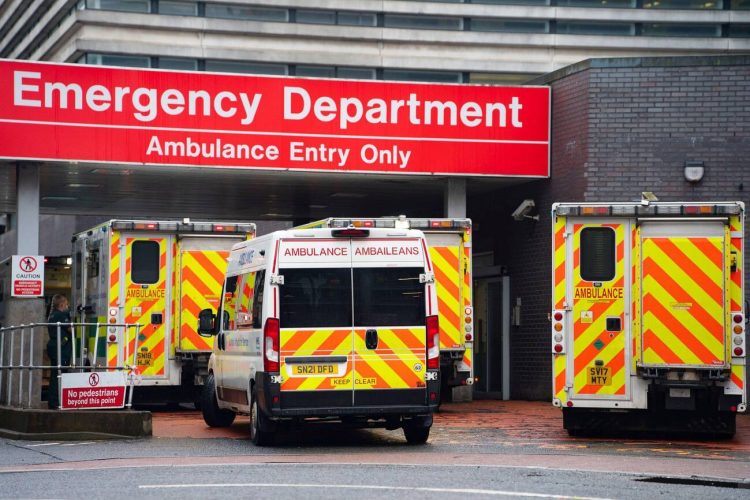A new and damning report has made severe criticisms of the UK’s healthcare system. The report claims that healthcare providers systematically leave rare disease patients behind. They often let these patients fall through the cracks, offering no clear care pathway or timely diagnosis. According to patient advocates and doctors, the NHS simply is not doing it for people suffering from unusual medical conditions. Experts and patient advocates increasingly refer to this growing crisis as UK healthcare rare illness failures. These failures cause alarming consequences—delayed diagnoses, incorrect treatments, psychological trauma, and, in most cases, irreversible harm. In spite of the UK’s dedication to equal access to healthcare, the rare ill are some of the most under-served.
The Cost of Diagnostic Neglect
Most patients with uncommon diseases exist in limbo for years. Some doctors never diagnose certain patients throughout their lives. Along the way, healthcare providers may misdiagnose them, refer them to psychiatric services, or completely dismiss their concerns. The prolonged delay worsens the condition, even irreversibly. Misdiagnoses also lead to wrong treatments that hurt more than heal. A number of rare diseases come with distinguishing symptoms, but as medical professionals are not aware, the telltale signs go unidentified. Such systemic delays characterise the trend of UK healthcare rare illness failures, lambasted in this report so vehemently.
When the System Ignores the Rare
The report says this’s not an arbitrary failure—no, it’s a structural one. The NHS focuses on treating routine conditions and providing acute care. Since rare diseases fall outside these priorities, healthcare providers often sideline patients with such conditions. General physicians do get the required training for diagnosing an atypical disease. In addition, standard diagnostic apparatus typically does not consider unusual possibilities. Instead, what occurs is repeat referrals, testing, and consultations—none of which move patients closer to solutions. Consequently, the healthcare system is, by design, ill-equipped to handle unusual cases. These issues clearly demonstrate the persistent UK healthcare rare illness failures inherent in the system.
Structural Gaps and UK Healthcare Rare Illness Failures
The availability of experts varies widely across the UK. While city centres may offer rare disease expertise, rural patients often face long waits or no access whatsoever. Even where specialists exist, referral systems are irregular and delayed. Doctors wait months before referring patients, and then refer them to other specialists. Meanwhile, patients’ symptoms worsen, and their quality of life declines. This inequality in accessibility further worsens the crisis. What is initially a health matter becomes a socioeconomic matter. The document quotes this geographical disparity as one of the top reasons for UK healthcare rare illness failures, arguing that location should not matter when it comes to the quality of care.
Mental and Economic Burden to Families
The burden of having a rare disease does not stop with symptoms in the body. Families and patients suffer from extreme economic and emotional burdens. They feel like they are invisible to the healthcare system. Many caregivers experience mental illnesses like depression and anxiety. As a result, parents of children with rare conditions often leave their jobs to provide full-time care. After losing faith in the NHS, families spend thousands of pounds on private healthcare services. Unfortunately, such efforts usually end up providing no solutions, merely more wastage of money. Even with policies aimed at delivering equality, the system ends up leaving behind those in need. Such inefficiencies also call for addressing the UK healthcare failures of rare illnesses.
What Needs to Change?
The report proposes practical policy recommendations. It requires enhanced training of GPs about rare conditions, more genetic testing, and improved referral mechanisms. It also encourages a national registry of rare disease patients to facilitate coordination and data collection. Most importantly, however, there’s a need for a funded provision to be established. Without the support of funds, policy alone will not be enough. Treatment of rare diseases has to be approached as an essential service, not an afterthought specialist domain. According to the report, the authors believe that unless reforms are implemented, the UK healthcare rare illness failure loop will continue to repeat indefinitely, further devastating lives.
Healthcare Justice for All
Beneath this problem lies an underlying one: Who gets to benefit from public healthcare? Essentially, the NHS must treat all people in an equal manner. In real life, people with uncommon conditions don’t receive that fairness. They are met with delay, disbelief, and institutional desertion. They are not requesting special care—just equal care. Healthcare is a human right, and this includes people with rare illnesses. UK healthcare rare disease failures are matters of justice, not of efficiency. Ultimately, fixing this problem involves remaining faithful to the values of the NHS and never abandoning anyone due to having a new condition.
Time to End the Cycle of UK Healthcare Rare Illness Failures
Publication of this report needs to mark a turning point. Facts are exposed. Stories are irresistible. And the failures must no longer be acknowledged to be false. UK healthcare rare disease failures have gone on far too long and hurt thousands of patients and families. Now is the time for actual change. Policymakers, healthcare leaders, and practitioners must listen and act. It’s not enough to acknowledge the problem. Solutions exist; the barrier is implementation. For individuals with rare diseases, change isn’t overdue—it’s about survival. The system must change to cure all, not the majority.





























